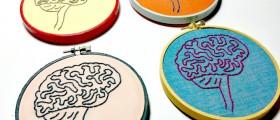
Chronic pain always negatively affects all areas of humanlife. No matter what kind of chronic pain is in question, it can seriouslyaffects person’s mood and activities. Chronic back pain is no different andpeople suffering from it are known to experience anxiety or depression. Theireveryday activities also become severely compromised and they can’t sleep or workas well as they once did.
Scientists used to believe that changes caused by chronic back painwere only temporary and that they will return to normal when the pain stops. However,some recent studies proved them to be wrong. These studies show that peopleaffected by pain in the back during several months (6 or more months) experiencesevere and permanent brain changes. These patients tend to age much faster thanpeople without this painful condition, and some were even found to age 20times faster than average healthy people of the same age.
How Chronic Back Pain Affects Brain?
As researchers found out, chronic back pain shrinks graymatter in the brain. Patients suffering from this type of pain can expect tolose about 11% of grey brain matter, which is many times more than healthypeople, who lose approximately 0.5% of this matter per year. Scientists explainthis fact by the overtime work of nerve cells. When a person is suffering fromchronic back pain his nerve cells have to work much harder. The longer thecondition lasts the harder it becomes to reverse these changes or treat themeffectively.
People experiencing chronic back pain are known to haveproblems with memory and attention, which are both closely related to theamount of pain during the day. Patients usually have less and more painful daysand all scientific tests proved they will have much better results when thepain is less prominent. Cognitive problems were found to be present in morethan 65% of patients tested on the “pain” days. Short term memory is alsoaffected by the stress caused by chronic back pain. Because of that, patientssuffering from this condition are less likely to be able to concentrate orrecognize images while in pain.
Can We Improve Memory?
There are a few tips for improvement of memory which can workfor patients suffering from chronic pains, but also for anyone else, whether they are in pain or not.
Reading out loud and writing down the things we need to rememberseem to be the two best ways. Rehearing and periodically reviewing information isalso very helpful. Use your left hand if you are right-handed and perform someeveryday tasks, like brushing the teeth. You may want to try some neurobicexercises, such as closing your eyes and dressing yourself, or doing somethingyou don’t know anything about. All these activities should be beneficial foryour memory.
Vitamins B, C and E and omega 3 fatty acids are also helpful for your memory and you should strive to use food naturally rich in these elements.

















Your thoughts on this
Loading...